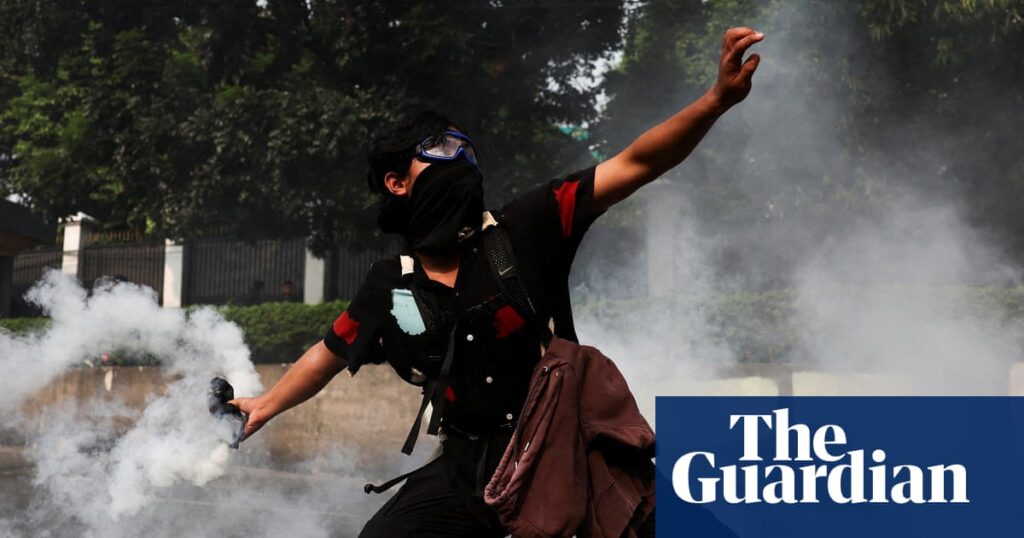
Riot police in Indonesia’s capital, Jakarta, have resorted to using water cannons and teargas against thousands of protesters, as public outrage grows over the generous allowances granted to parliament members. The demonstrations, which took place on Monday, drew students, workers, and activists who expressed their discontent with the monthly housing allowance of 50 million rupiah (approximately $3,075) for MPs—an amount nearly ten times the minimum wage in Jakarta.
The protestors are demanding the abolition of these allowances, viewing them as excessive, especially when added to lawmakers’ regular salaries. The demonstrations also targeted what the protestors referred to as “corrupt elites” within the government, criticizing policies that they argue disproportionately benefit conglomerates and the military. This sentiment was echoed in a press release from the student group Gejayan Memanggil.
Military Influence and Government Policies
The protests come in the wake of increased military involvement in civilian affairs, a trend that has been growing under the leadership of President Prabowo Subianto, a former general. In March, Indonesia passed legislation permitting military personnel to hold more civilian roles. More recently, the government announced the creation of 100 new military battalions, which will be trained in agriculture and animal husbandry, and plans for the military to start manufacturing pharmaceuticals by July.
These developments have sparked concern among citizens who see them as a consolidation of power by the military, potentially at the expense of democratic governance. The use of military resources for civilian purposes has been a contentious issue, with critics arguing it diverts focus from pressing public needs.
Austerity Measures and Public Discontent
The protests are occurring against a backdrop of strict austerity measures implemented by President Prabowo. These include significant cuts to education, health, and public works sectors, which have further fueled public dissatisfaction. The austerity measures, combined with the perceived extravagance of parliamentary allowances, have intensified calls for reform.
Monday’s protests saw demonstrators clashing with police as they attempted to approach the parliament building. Protesters retaliated by throwing rocks and bottles and setting fires near the heavily fortified compound. Authorities had blocked streets leading to the parliament, including several toll roads, resulting in severe traffic congestion throughout the city. Over 1,200 security personnel were deployed to maintain order, although no injuries were immediately reported.
Public Reaction and Political Implications
House Speaker Puan Maharani defended the allowances, stating they were adjusted to reflect current living costs in Jakarta. However, this justification has done little to quell public anger. Corruption remains a pervasive issue in Indonesia, with both police and parliament members perceived as widely corrupt in the nation of over 280 million people.
Recent weeks have seen similar protests in Central Java and Sulawesi, where citizens have gathered to oppose hikes in property taxes. Analysts suggest that the scale and intensity of these protests may signal a growing wave of dissent against the Prabowo administration.
“The sudden eruption of protests may indicate a new level of anger and dissent toward the Prabowo government,” analysts say, pointing to the widespread nature of the demonstrations.
The Indonesian government now faces the challenge of addressing these grievances while maintaining stability. The protests highlight a critical juncture for Indonesia’s political landscape, as citizens demand greater accountability and transparency from their leaders.
As the situation develops, the government’s response will be closely watched both domestically and internationally, with potential implications for Indonesia’s democratic processes and civil-military relations.






